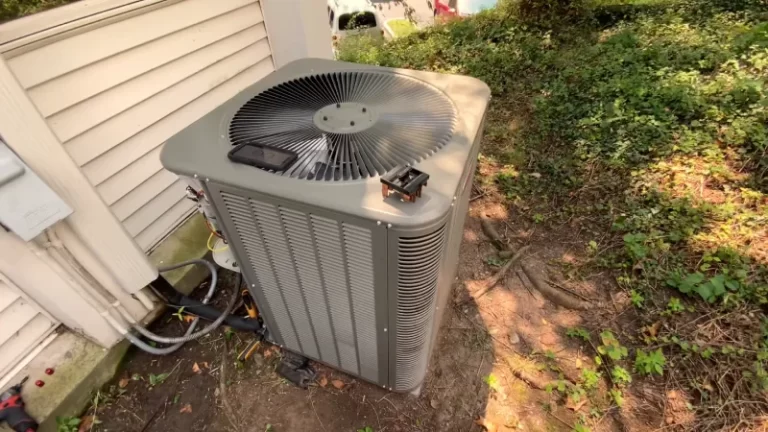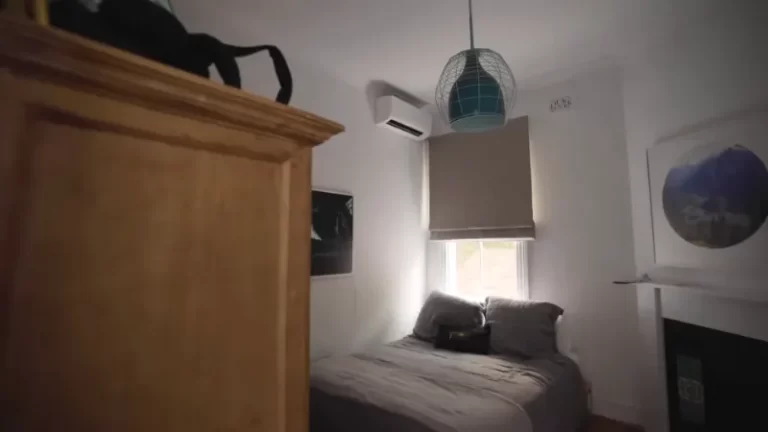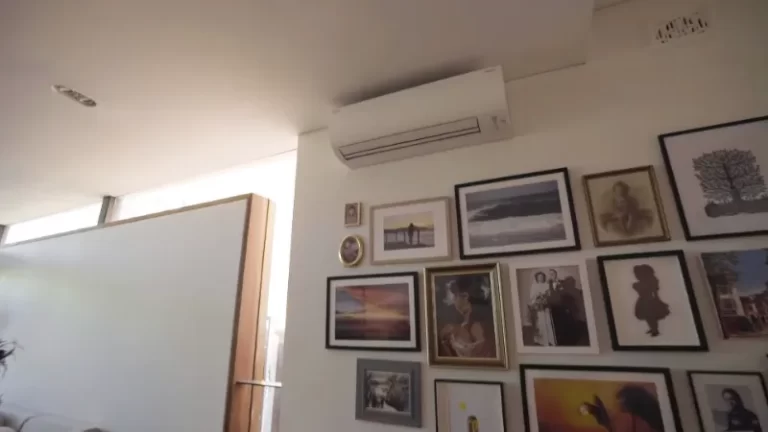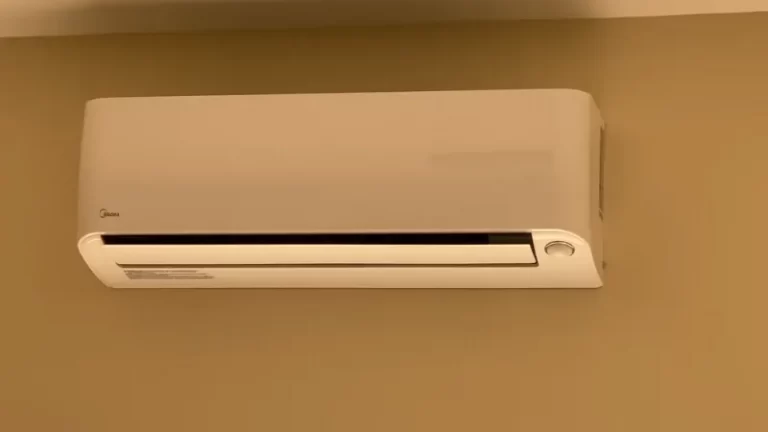Will a 2000 Watt Generator Run an Air Conditioner? [Choosing the Right Size]

Generators have become essential for many people who live in areas that frequently experience power outages or where electrical infrastructure is not readily available. While generators can power a variety of appliances and devices, one of the most common questions is whether a 2000 watt generator can run an air conditioner.
This is an important topic for those who rely on generators to power their homes or businesses during power outages or when off-grid. In this blog, we will explore the answer to this question and provide insights on the key factors to consider when using a generator to power an air conditioner.
Will a 2000 Watt Generator Run a Air Conditioner?
Yes, a 2000 watt generator can run an air conditioner, but it depends on several factors. The size and type of the air conditioner are important considerations, as well as whether the generator is capable of producing enough power to meet the air conditioner’s needs.
For example, a 2000 watt generator can typically run a small window air conditioner, but it may not be enough to power a larger central air conditioning system. In general, the best generator size for running an air conditioner would be in the range of 2800 to 3000 watts, particularly for larger air conditioning units.
It’s important to note that using a soft start can also be beneficial when running an air conditioner with a generator. Soft start technology allows the air conditioner to start up in stages, reducing the amount of power needed at the outset and preventing the generator from being overloaded.
Ultimately, it’s essential to match the generator’s power output to the air conditioner’s requirements to ensure smooth, safe, and reliable operation. Always refer to the manufacturer’s specifications and consult with a professional electrician or generator expert if you have any doubts or questions about generator capacity and compatibility with your air conditioning system.
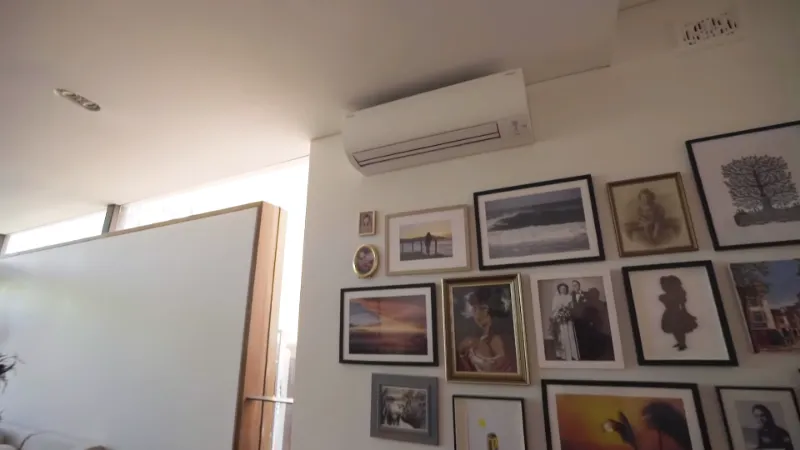
Understanding Air Conditioner Wattage Requirements
Before we can answer the question of whether a 2000 watt generator can run an air conditioner, it is essential to understand the wattage requirements of an air conditioner. The wattage requirement of an air conditioner is the amount of power it needs to operate efficiently. Typically, air conditioners require more power to start up (starting watts) and then require less power to continue running (running watts).
The wattage requirement of an air conditioner can vary depending on several factors, including the size of the unit (measured in BTUs or tons), the type of air conditioner (central, window, portable), and the manufacturer’s specifications. Generally, larger air conditioners will require more wattage to operate compared to smaller ones. Additionally, the efficiency of the unit also affects the wattage requirement.
The type of air conditioner also plays a crucial role in determining the wattage requirement. A central air conditioning system will typically require more wattage than a window air conditioner or a portable air conditioner.
It is important to note that the wattage requirement listed on an air conditioner is the maximum power it can consume. Therefore, you do not necessarily need to supply the air conditioner with the exact wattage listed on the unit. You can use a generator with slightly lower wattage to power an air conditioner, but it might not operate at its optimal efficiency.
The wattage requirement of an air conditioner varies depending on several factors, including the size of the unit, the type of air conditioner, and the manufacturer’s specifications. While it is possible to use a generator with slightly lower wattage to power an air conditioner, it is essential to ensure that the generator can supply the required starting watts and running watts of the air conditioner.
Determining the Right Size Generator for Your Air Conditioner
How Generator Size is Measured
The size of a generator is measured in watts, which represents the amount of power the generator can produce. In order to determine the right size generator for your air conditioner, you need to know the power consumption or wattage requirement of your air conditioner. The wattage requirement can usually be found on the air conditioner’s label or in the user manual.
Importance of Selecting the Right Size Generator for Your Air Conditioner
Selecting the right size generator for your air conditioner is crucial to ensuring that it runs smoothly and without any problems. A generator that is too small for your air conditioner may not be able to supply enough power to start the unit, or may cause it to run inefficiently. On the other hand, a generator that is too large for your air conditioner will be a waste of money and resources.
Guidelines for Choosing the Appropriate Generator Size for Your Air Conditioner
When selecting a generator size for your air conditioner, you need to consider two key factors:
To determine the appropriate generator size for your air conditioner, you need to calculate the total wattage requirement of the unit. You can do this by adding the starting wattage and the running wattage. For example, if your air conditioner has a starting wattage of 2000 watts and a running wattage of 1200 watts, you would need a generator with a total wattage output of at least 3200 watts.
It is also important to note that different types of air conditioners have different wattage requirements. Central air conditioners typically require more power than window or portable air conditioners. Therefore, it is important to check the wattage requirement of your specific air conditioner and choose a generator that can handle it.
In summary, selecting the appropriate generator size for your air conditioner is crucial to ensuring its smooth and efficient operation. By considering the starting wattage and running wattage, as well as the type of air conditioner you have, you can determine the right size generator for your needs.
Benefits of Using a Soft Start With a Generator
A soft start is a device that helps reduce the initial starting surge of an air conditioner’s compressor when it is connected to a generator. When an air conditioner starts up, its compressor requires a significant amount of power to get going.
This initial power surge can exceed the power output of smaller generators, leading to the generator shutting down or the air conditioner failing to start. A soft start helps mitigate this issue by gradually ramping up the compressor’s power usage, which in turn reduces the overall power consumption and helps ensure a smoother start.
A soft start works by limiting the amount of power that goes into the compressor during start-up. It does this by adjusting the voltage and current going to the compressor, which helps to reduce the amount of power that is needed to start it.
The device then gradually increases the power to the compressor until it reaches its normal operating levels. The result is a more gradual start-up that puts less strain on the generator and helps ensure a more reliable operation.
There are several advantages to using a soft start with your air conditioner and generator. Firstly, it can help extend the lifespan of your air conditioner by reducing the amount of stress that is put on the compressor during start-up.
This can help prevent premature wear and tear on the unit and reduce the likelihood of breakdowns. Additionally, a soft start can help save on fuel costs by reducing the amount of power needed to start the air conditioner.
This, in turn, reduces the overall amount of fuel needed to run the generator, which can lead to significant cost savings over time. Finally, a soft start can also help improve the overall performance of the air conditioner by ensuring a more consistent power supply.
By reducing the initial power surge, the compressor is less likely to experience voltage drops or fluctuations, which can negatively affect its performance.
In summary, a soft start is a useful device that can help reduce the strain on your generator and air conditioner. By limiting the initial starting surge of the compressor, it helps ensure a smoother start-up and a more consistent power supply, while also reducing wear and tear on the air conditioner and generator. If you’re using a smaller generator to power your air conditioner, a soft start is definitely worth considering.
Tips for Running an Air Conditioner on a Generator
Running an air conditioner with a generator is a practical solution for people who live in areas where power outages are common. However, it is important to take certain precautions and follow some best practices to ensure the safe and efficient operation of your equipment. Here are some tips for running an air conditioner on a generator.
Proper Maintenance and Usage
To ensure the efficient operation of your generator and air conditioner, it is essential to maintain them properly. Keep your generator clean, free from debris, and well-ventilated. Change the oil regularly and replace the air filter when necessary.
Similarly, clean or replace the air filter and keep the coils clean on your air conditioner to keep it functioning efficiently.
Safety Precautions
Running a generator to power an air conditioner can be hazardous if proper safety precautions are not followed. Always operate your generator outside in a well-ventilated area to avoid carbon monoxide poisoning.
Also, keep the generator away from any combustible materials such as dry leaves or grass. Do not overload the generator or connect it to a home’s electrical system without using a transfer switch.
Best Practices for Prolonging the Lifespan
Running a good air conditioner on a generator can put extra strain on both your generator and air conditioner. To prolong their lifespan, avoid running the air conditioner on the generator for extended periods.
Instead, use it only when necessary and let it rest periodically. Turn off any other unnecessary appliances or electronics when running the air conditioner on the generator to prevent overloading. Lastly, consider using a soft start device to reduce the initial load on your air conditioner when starting it up with your generator.
Running an air conditioner on a generator can be a useful solution for power outages or remote locations, but it requires proper maintenance, safety precautions, and best practices. Follow the tips outlined above to ensure the efficient and safe operation of your equipment, prolong their lifespan, and avoid any mishaps.
Air Conditioner Wattage Requirements for Different Sizes and Types
| Air Conditioner Type | BTUs | Wattage Requirement |
|---|---|---|
| Window Air Conditioner | 5,000 | 500-600 |
| Window Air Conditioner | 6,000 | 600-700 |
| Window Air Conditioner | 8,000 | 700-1,000 |
| Window Air Conditioner | 10,000 | 1,000-1,200 |
| Central Air Conditioner | 24,000 | 2,500-3,000 |
| Central Air Conditioner | 36,000 | 3,500-4,000 |
| Portable Air Conditioner | 12,000 | 1,200-1,500 |
| Portable Air Conditioner | 14,000 | 1,400-1,700 |
Note: These wattage requirements are estimates and may vary based on other factors such as energy efficiency, thermostat settings, and environmental conditions. It’s important to consult the manufacturer’s specifications for your specific air conditioner to determine the exact wattage requirement.
Frequently Asked Questions
Can You Run Multiple Air Conditioners on a 2000 Watt Generator?
It is not recommended to run multiple air conditioners on a 2000 watt generator, as the wattage requirements will exceed the generator’s capacity. It is best to have a generator with a higher wattage output if you need to power multiple air conditioners. A 5000 watt generator can do it easily.
Is It Safe to Use a Generator to Power an Air Conditioner Inside a Home?
It is not recommended to use a generator inside a home, as it can produce carbon monoxide, which is a poisonous gas. It is important to use a generator outside and away from any open windows or doors to ensure proper ventilation.
Can You Use a 2000 Watt Generator to Power Other Appliances at the Same Time as an Air Conditioner?
It depends on the wattage requirements of the other appliances. If the combined wattage requirements exceed the generator’s capacity, it may overload the generator and cause it to shut down. It is important to check the wattage requirements of all appliances before using a generator to power them simultaneously.
What is the Difference Between Starting Watts and Running Watts in a Generator?
Starting watts refer to the initial surge of power required to start an appliance, while running watts refer to the continuous power needed to keep the appliance running. Air conditioners typically require more starting watts than running watts, which is important to keep in mind when selecting a generator.
How Often Should a Generator and Air Conditioner Be Serviced When Used Together?
It is important to follow the manufacturer’s recommendations for maintenance and servicing for both the generator and air conditioner. It is recommended to have a professional service the generator at least once a year and to clean or replace the air filter in the air conditioner regularly to ensure proper function. Additionally, regular inspection and cleaning of the generator and air conditioner can help prolong their lifespan.
Conclusion
Whether a 2000 watt generator can run an air conditioner or not depends on several factors, including the wattage requirement of the specific air conditioner, the size and capacity of the generator, and the presence of a soft start or other additional equipment.
It is essential to understand the power needs of your air conditioner and select an appropriately sized generator to avoid damage to both the generator and air conditioner. Taking proper maintenance and safety precautions, as well as following best practices, can help ensure the longevity of your equipment and the effectiveness of your power supply.
With the right knowledge and equipment, running an air conditioner on a generator can provide a valuable source of cooling during power outages or other emergencies.

